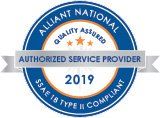LLC Identity Theft
It's not only individuals at risk

The following is reprinted from the American Land Title Association - Title Law Quarterly, Vol 9, Issue 1
In 2017, title companies uncovered a large-scale national fraud scheme targeting distressed properties and borrowers. In the scheme, criminals would obtain information about a loan in default or already in foreclosure. The wrongdoers then create and record fraudulent instruments related to the loan in the land records. The fraudulent instruments may vest title to the perpetrators, which can allow them to sell or refinance the property.
This fraud has evolved over the past year. Criminals are now hijacking legitimate LLC real property owners by filing fraudulent annual statements of information with Secretaries of State, presenting fraudulent operating agreements, impersonating managing members with counterfeit identification and obtaining hard money cash out loans. This is typically happening with free and clear vacant land, meaning the criminals disappear with the money.
In many instances, the criminals are getting on the websites of Secretaries of State and modifying the statements of information online. Traditionally, title companies have relied on the validity of Secretary of State filings to help confirm the managing member. This is not a safe bet anymore. In addition, many Secretaries of State are not reviewing statements of information to confirm that the last managing member shown on the previous filing is the same as the latest filing. This basically allows anyone to hijack an LLC.
"The bad guys are exploiting the hard-money space due to the focus on the collateral, not the borrower, and their tendencies to not meet the borrower and transact the loan online and through email," said Bill Burding NTP, executive vice president and general counsel of Orange Coast Title Company. "This allows domestic and overseas criminals to commit loan and title fraud."
Additional scrutiny of the LLC is required, including a review of the entire SOS SI chain, comparing the date of the operating agreement to when they were incorporated and purchased the property. It should also be required, as practical as possible, for the lender and escrow to deal with the principals in-person.

Articles







